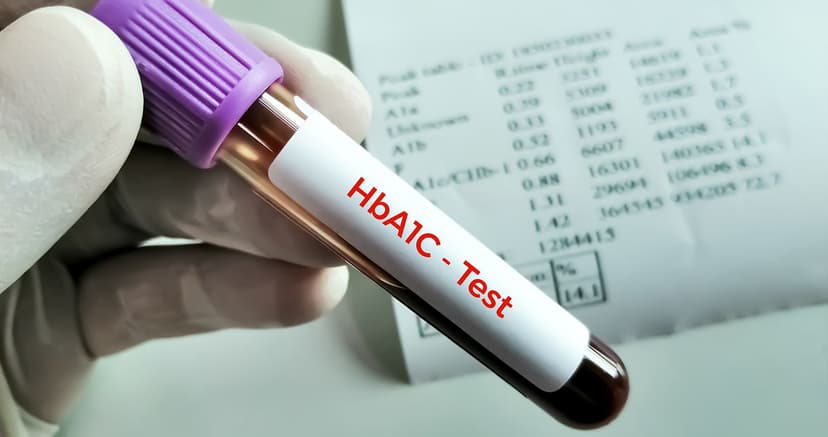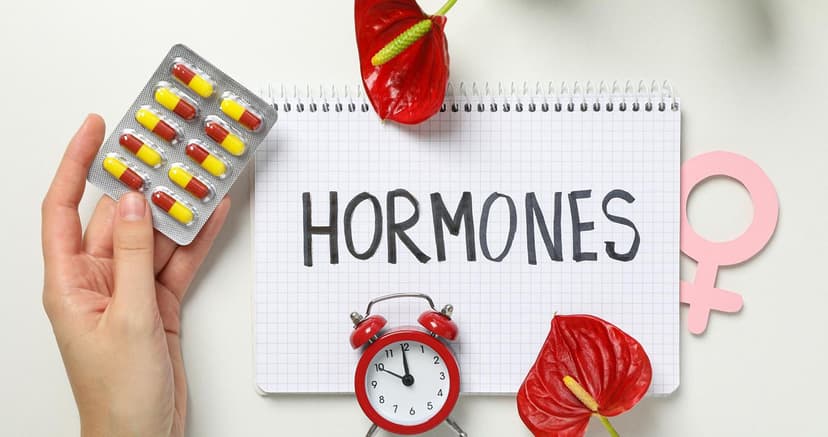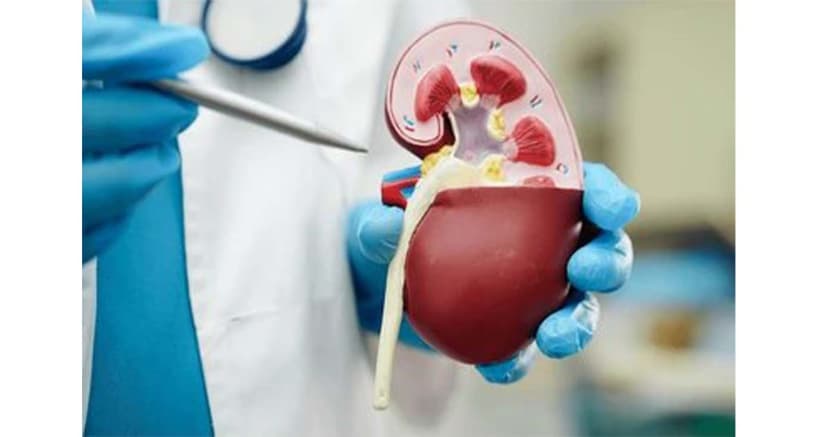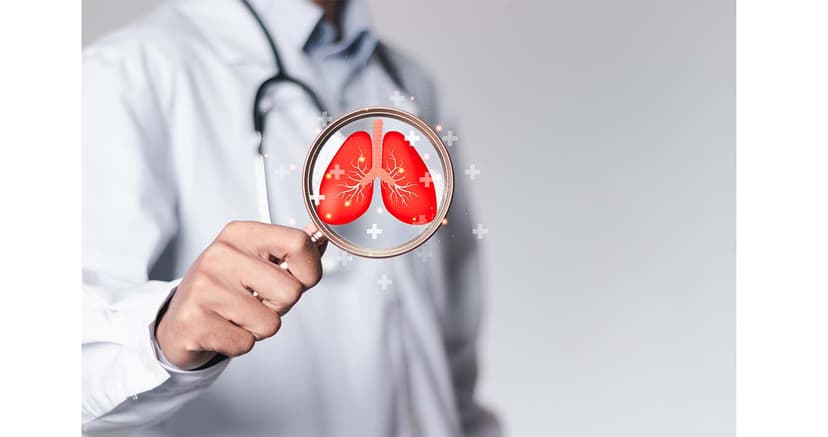The Role of Diet in Managing Chronic Kidney Disease
By:

Apex Hospitals
27-10-2024

Kidney disease is a significant health concern that affects millions globally. It occurs when the kidneys are damaged and unable to filter blood effectively. This impairment disrupts the balance of waste, fluids, and electrolytes in the body, leading to severe complications such as high blood pressure, cardiovascular diseases, and kidney failure. One of the most critical aspects of managing kidney disease is adopting a proper diet, which can help mitigate the condition's progression and alleviate its impact.
The kidneys are vital for maintaining overall health by filtering waste and excess fluids, balancing electrolytes, and producing essential hormones that regulate blood pressure and support red blood cell production. When their function declines, toxins and fluids accumulate in the body, exacerbating health risks. Chronic kidney disease (CKD), a progressive condition, is particularly concerning. In India, CKD affects 8% to 17% of the population, yet nine out of ten adults with the condition are unaware of it. Alarmingly, nearly half of those with severe kidney dysfunction remain undiagnosed unless they require dialysis.
CKD often remains undetected due to its asymptomatic nature in the early stages. According to the National Kidney Foundation (NKF), CKD is characterized by a glomerular filtration rate (GFR) of less than 15 mL/min/1.73 m² or evidence of kidney damage lasting at least three months. The growing prevalence of diabetes and hypertension, both significant risk factors for CKD, highlights the urgent need for awareness and preventive measures. Early diagnosis, lifestyle modifications, and medical management are essential to combat the rising burden of kidney disease and improve patient outcomes.
Why is diet important in managing kidney disease?
Healthy kidneys maintain the body's balance of salts and minerals, but this critical function is compromised in chronic kidney disease (CKD). As a result, dietary choices play a crucial role in helping the kidneys maintain this balance and improving overall well-being. Consuming the right foods—and avoiding those high in sodium, potassium, and phosphorus—can prevent or delay complications associated with CKD and enhance the effectiveness of treatments.
Understanding the impact of calories, fats, proteins, and fluids on the body is essential for individuals with CKD, especially as the disease progresses. Nutritional needs evolve in advanced stages, and healthcare professionals may advise working with a registered dietitian to develop a personalized eating plan. This approach ensures dietary recommendations align with an individual's health status and lifestyle.
Dietary management is a cornerstone of CKD treatment. By making informed food choices, adhering to nutritional guidelines, and limiting certain nutrients, individuals can alleviate symptoms, slow disease progression, and improve their quality of life. A well-structured diet helps manage CKD and reduces the risk of complications, making it a vital component of comprehensive care.
What is medical nutrition therapy?
Medical Nutrition Therapy (MNT) is a specialized form of nutrition counselling that a registered dietitian provides to support medical and health goals. For individuals with chronic kidney disease (CKD), MNT is vital in managing the condition. It can help slow the progression of CKD, prevent or address complications, and enhance overall quality of life.
Our dietitians specialize in the unique nutritional requirements of people with CKD. They develop tailored dietary plans that align with the specific needs of kidney disease patients. You can connect with our registered dietitians and get personalized care to manage CKD effectively.
Why is it important for people with CKD to know about calories?
The foods and drinks you consume give your body energy, measured in calories. Maintaining the proper calorie intake is essential for overall health. You may lose weight if you consume fewer calories than your body needs. However, excessive weight loss can weaken the body and worsen health, especially for individuals with chronic kidney disease (CKD).
People with CKD often struggle with appetite loss or changes in taste, which can lead to reduced food intake. If you’re experiencing these issues, consult a dietitian or healthcare professional to ensure you meet your calorie needs through nutritious sources. They can guide you in finding healthy, appealing ways to incorporate the right calories into your diet, supporting both energy levels and kidney health.
Why is it important to know about protein?
Protein is essential for building and maintaining muscle, bones, skin, connective tissue, internal organs, and blood. It also plays a vital role in fighting diseases and healing wounds. However, as the body processes protein, it produces waste that the kidneys must filter out.
For individuals with chronic kidney disease (CKD), healthcare professionals typically recommend consuming moderate amounts of protein. Too much protein can strain the kidneys, while too little may lead to malnutrition—a condition where the body doesn't receive enough essential nutrients. Striking the right balance is crucial, and a dietitian can guide you in adjusting the amount and sources of protein based on your individual needs.
Healthy adults are advised to consume about 0.8 g of protein per kilogram of body weight per day. Consuming more than this recommended dietary allowance (RDA) can increase health risks, even for those without kidney issues. For CKD patients, protein intake recommendations vary depending on the stage of the disease, as determined by the glomerular filtration rate (GFR). Working with a dietitian can ensure optimal nutrition while supporting kidney function.
For people on dialysis
A low-protein diet may benefit individuals with chronic kidney disease (CKD) before starting dialysis. Your healthcare provider or dietitian will assess your weight, disease stage, muscle mass, and overall health to recommend the appropriate protein intake. While reducing protein can help manage kidney function, consuming enough to meet your body’s needs is essential, making professional guidance crucial.
Once dialysis begins, the dietary approach shifts to requiring more protein to compensate for what is lost during treatment. A high-protein diet that includes fish, poultry, pork, or eggs at every meal is often recommended. Dialysis patients may need to consume about 8 to 10 ounces (225 to 280 grams) of high-protein foods daily to maintain muscle mass and overall health.
Dietitians may also suggest incorporating egg whites, egg white powder, or protein powders as convenient and effective ways to meet protein requirements. Collaborating with our healthcare team ensures your diet is tailored to your unique needs at every stage of CKD.
Why is it important to know about fat?
Fat is an essential nutrient that provides your body with energy, supports the absorption of vitamins, and helps maintain healthy cholesterol and blood pressure levels. While fat is an integral part of a balanced diet, consuming too much or choosing unhealthy types of fat can lead to complications, particularly for individuals with chronic kidney disease (CKD). Excess unhealthy fat can contribute to plaque buildup in blood vessels, increasing the risk of heart disease—a common concern for those with CKD.
People with CKD should prioritize healthier fats, such as monounsaturated and polyunsaturated fats, found in canola, olive, nuts, salmon, and sesame oil. These fats can help protect heart health when used as substitutes for saturated and trans fats, which are known to raise cholesterol and clog arteries. Saturated fats are commonly found in animal products like butter, red meat, and whole milk. In contrast, trans fats are often present in processed baked goods, fried foods, and hydrogenated oils such as margarine and shortening.
To support heart health, it’s important to limit saturated and trans fats while incorporating more sources of healthy fats. For example:
- Eat these less often: Butter, lard, red meat, whole milk, cookies, cakes, doughnuts, French fries, margarine, and shortening.
- Eat these more often: Canola oil, olive oil, salmon, nuts, oatmeal, and sesame oil.
Consult with a dietitian or healthcare professional to develop a personalized diet plan incorporating healthy fats while supporting your overall kidney and heart health.
Why is it important to know about sodium, potassium and phosphorus?
Sodium, a mineral found in salt, helps regulate fluid balance in the body. However, excessive sodium can lead to fluid retention, high blood pressure, and kidney and heart strain. The FDA recommends limiting sodium intake to no more than 2,300 mg daily, but individuals with kidney disease may need to adjust this based on their health status. Processed foods, canned goods, and processed meats are significant sources of sodium. To reduce sodium, focus on fresh or low-sodium canned foods, unprocessed meats, cooking from scratch, and using herbs and spices instead of salt.
Potassium levels also need careful management in individuals with CKD, as damaged kidneys struggle to remove excess potassium. It’s important to avoid salt substitutes containing potassium and consult a dietitian to balance potassium intake through diet and food preparation techniques.
Additionally, phosphorus buildup, common in CKD, can weaken bones. It is found naturally in protein-rich foods and added to processed items. As kidney disease progresses, phosphate binders may be prescribed to help manage phosphorus levels. Regular consultations with a healthcare professional or dietitian are essential for managing sodium, potassium, and phosphorus in a CKD diet.
Why is Keeping Track of How Much Liquid You Consume Important?
Proper hydration is essential for your body’s functions, but managing liquid intake becomes crucial for individuals with advanced CKD. Damaged kidneys struggle to remove excess fluid, which can lead to swelling high blood pressure, and put additional strain on the heart. Consuming too much liquid may indicate high sodium intake, exacerbating fluid retention.
Consult a dietitian or healthcare professional to determine the right amount of liquid for your specific needs. Contact your healthcare provider for guidance if you notice any swelling, particularly in the face, arms, legs, or abdomen. Monitoring your fluid intake helps prevent complications and ensures your kidneys and overall health are well-managed.
Take Control of Your Kidney Health with Apex Hospitals
At Apex Hospitals, we understand diet's vital role in managing kidney disease and enhancing overall health. Our expert nephrologists and registered dietitians work together to create a personalized, kidney-friendly dietary plan tailored to your unique needs. By focusing on nutrient balance and portion control, we can help you manage your condition, slow disease progression, and improve your quality of life. Schedule a consultation today to begin your journey towards better kidney health and optimal well-being.
FAQS
Related Articles
Connect With Us
Health In A Snap, Just One App.
KNOW MORE

























































































































































